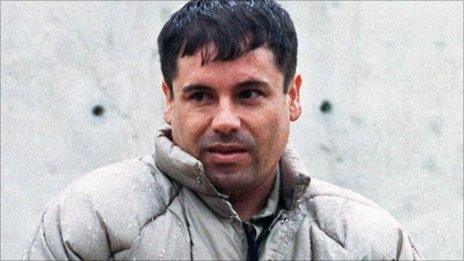Mexico deploys thousands to hunt down Joaquin Guzman
- Published
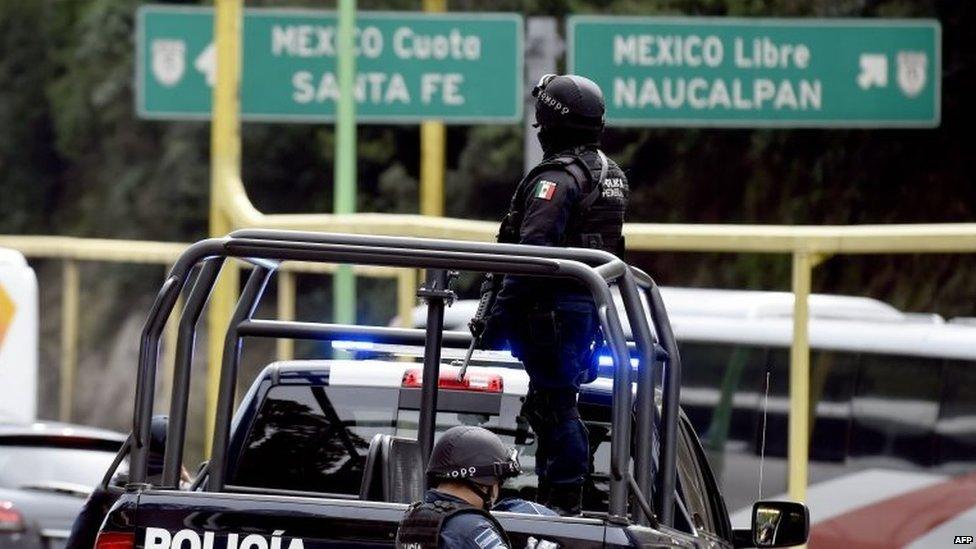
More than 100 checkpoints have been set up across Mexico
Mexico says it has stepped up its search for drug lord Joaquin Guzman, who escaped from jail on Saturday.
The Interior Ministry said it had deployed almost 10,000 police and 48 dogs to track down the fugitive leader of the Sinaloa cartel.
Mexico is also co-operating with neighbouring Guatemala and the United States to increase border controls.
Guzman's escape from a top-security jail through a 1.5km-long tunnel is a major embarrassment for officials.
It is the second time the drug cartel leader has escaped from a top-security Mexican jail.
Manhunt
More than 100 roadblocks have been set up on highways across Mexico and 100,000 leaflets with mug shots of Guzman have been distributed at toll booths.
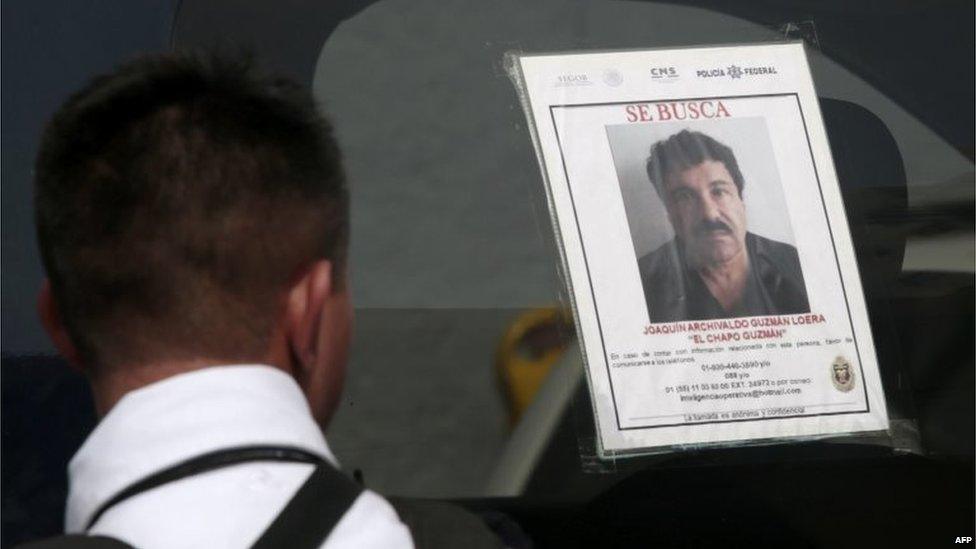
Police have handed out 100,000 leaflets with Guzman's picture
Airports have been put on alert and security personnel have been told to search any private flights taking off.
Police are also searching hotels and hospitals for any trace of Guzman.
The government is offering a 60m peso ($3.8m; £2.4m) reward for information leading to his capture.
On Wednesday, Mexican officials said they were also co-operating with the US Drug Enforcement Administration (DEA) and the FBI.
The DEA reportedly played a key role in Guzman's 2014 re-capture, providing intelligence which led Mexican security forces to the apartment where he was hiding, in his native Sinaloa state in north-western Mexico.
The Mexican interior minister has also held meetings with Guatemalan officials to prevent Guzman slipping into the neighbouring country.
In 1993, Guzman was arrested just south of Mexico's border with Guatemala.
Repeat escape
Saturday was the second time Guzman managed to escape from a maximum-security jail.
In 2001 he broke out of Puente Grande prison, reportedly hiding in a laundry cart.
He was on the run for 13 years before being re-arrested in February last year.
The scale of the tunnel through which he fled on Saturday raised suspicions that he had help from prison staff.
Three senior prison officials, including the director of the jail, have been dismissed.
CCTV footage showed the moment Guzman escaped from prison through a tunnel
The escape tunnel, which leads to a building outside the prison perimeter, is more than 1.5km (1 mile) long and measures 1.70m (5ft 6in) in height.
Security officials said it could have taken a year to build.
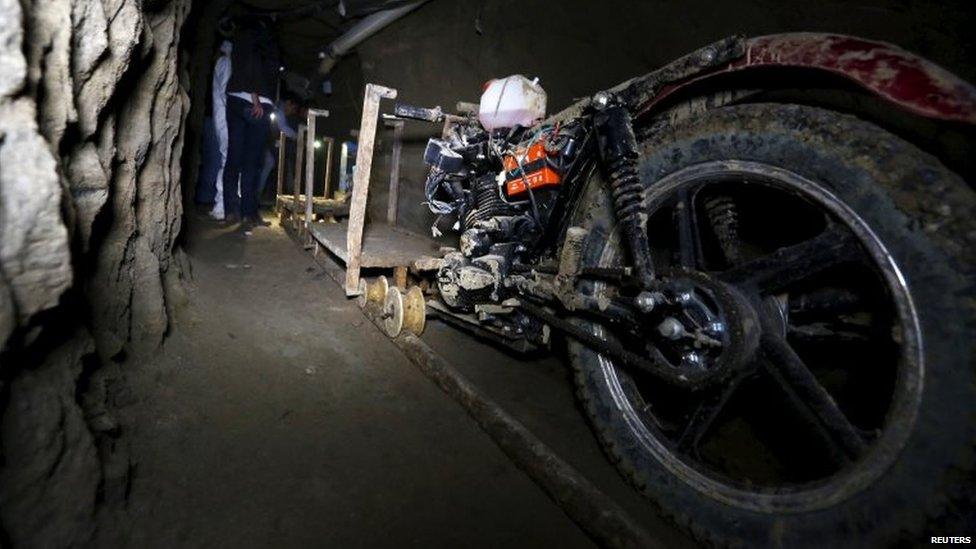
A motorbike mounted on rails was used to carry machinery and dirt inside the tunnel
On Wednesday, prison officials allowed journalists to inspect the cell from which he fled.
Each journalist was only given two minutes inside the cell.


At the scene: Juan Paullier, BBC Mundo, Altiplano prison
One-hundred-and-twenty seconds are enough to raise questions about how this escape was possible.
How could it be that no one heard or saw anything?
Inside the cell suspicion mounts that you don't get out of here without accomplices on the inside.
Underneath the shower is the hole where the tunnel starts, but it's so deep and dark you can't really see anything.
At two sides of the hole are 1.2m-high walls which were meant to shield Guzman's privacy while he was showering.
The security camera could not see past these walls and it was behind them that the man who is now being sought by thousands of police escaped.

The Sinaloa cartel, which Guzman leads, is one of Mexico's most powerful drug gangs, responsible for smuggling huge quantities of cocaine, heroin and methamphetamines to the United States.
Following his escape, the Chicago Crime Commission has again declared Guzman "Public Enemy Number One".
Security officials in the US and Mexico fear that the longer Guzman remains free the stronger his cartel will get.
In recent years, the Sinaloa cartel had lost some of its power to other rival gangs.
- Published15 July 2015
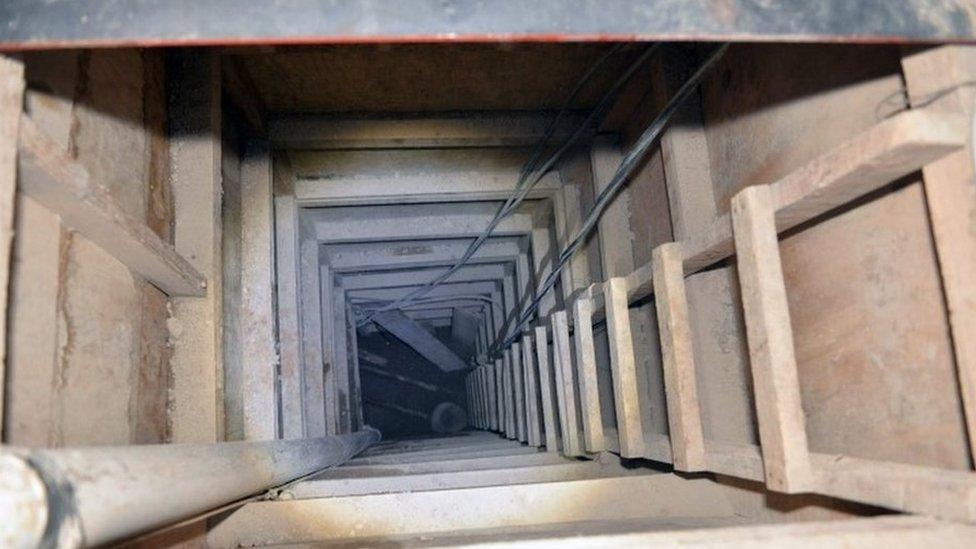
- Published13 July 2015
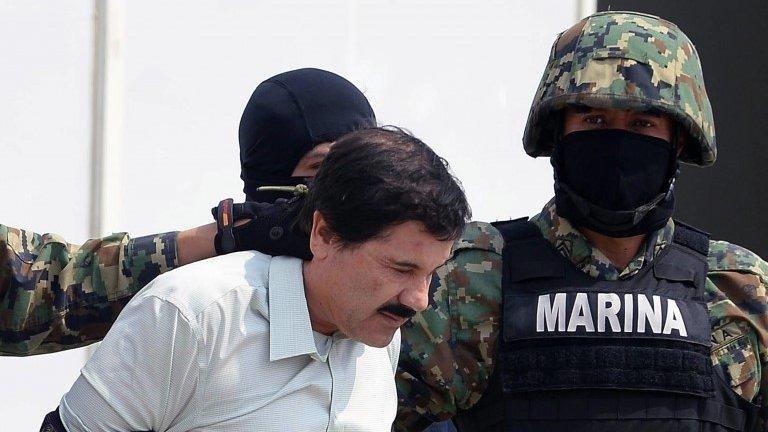
- Published22 February 2014
